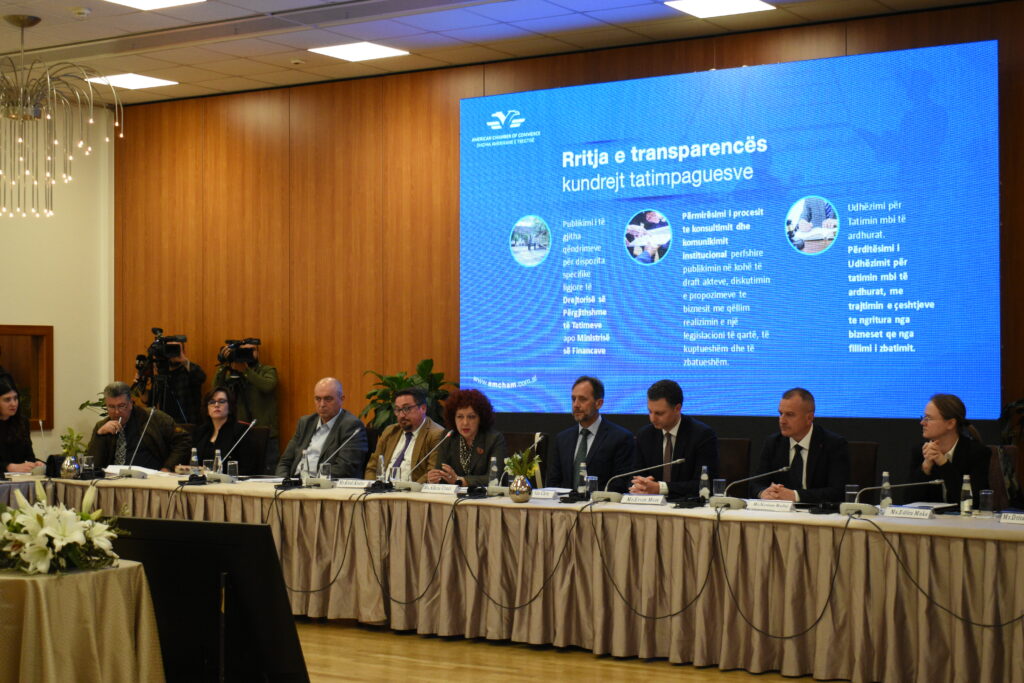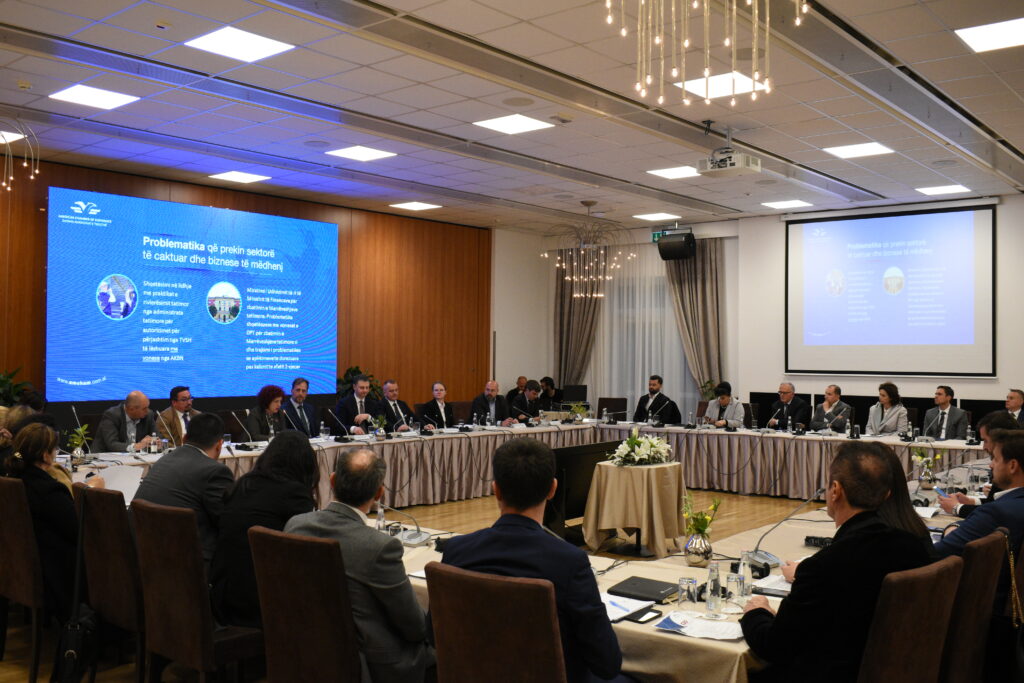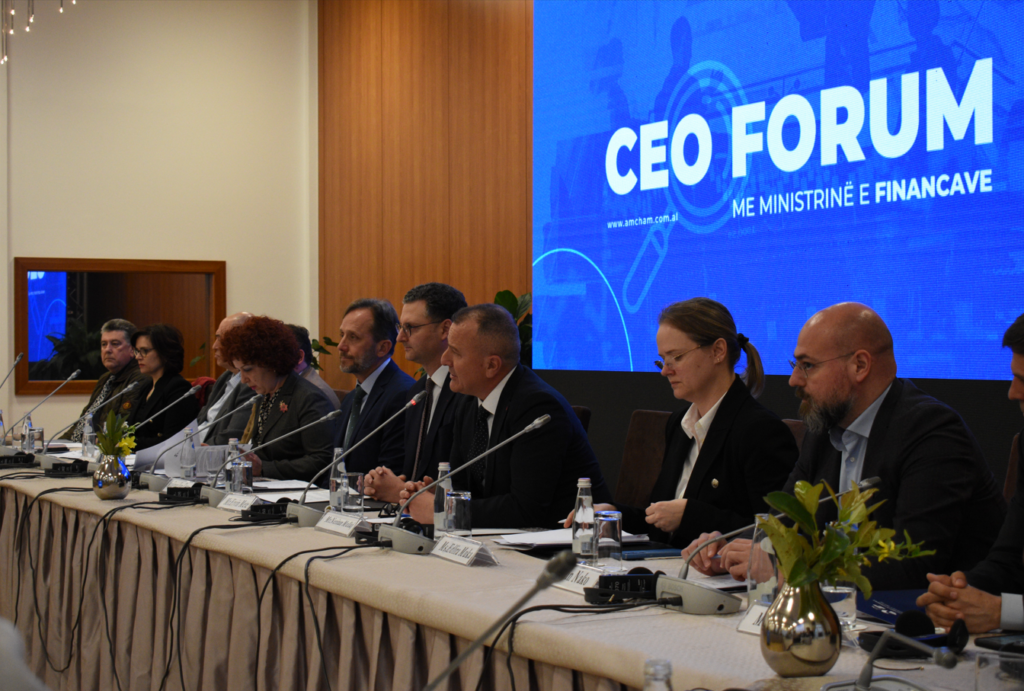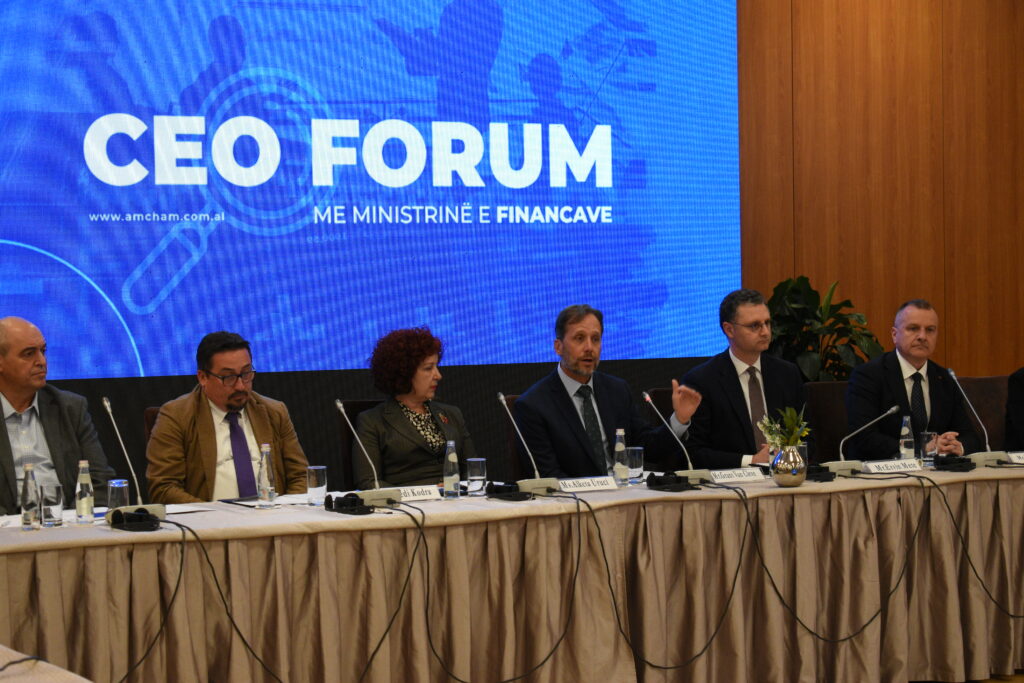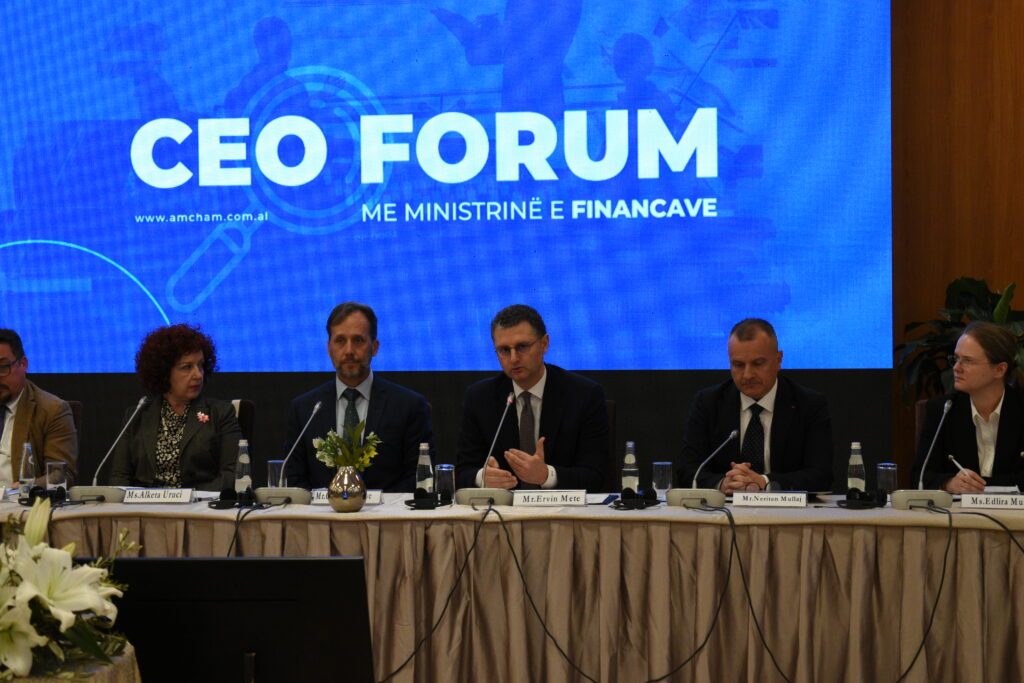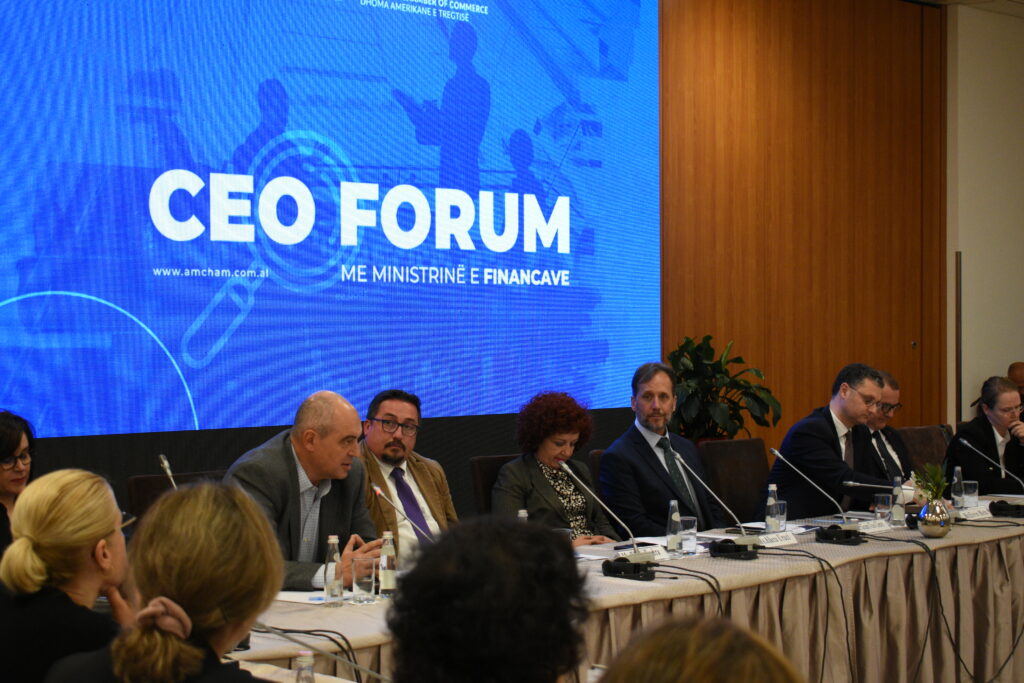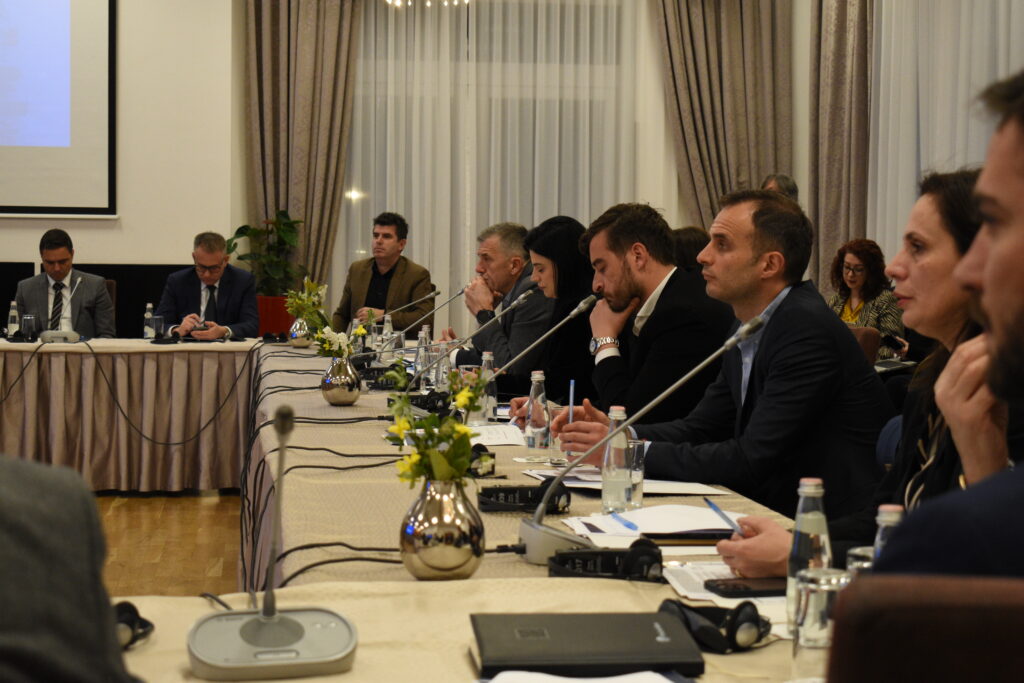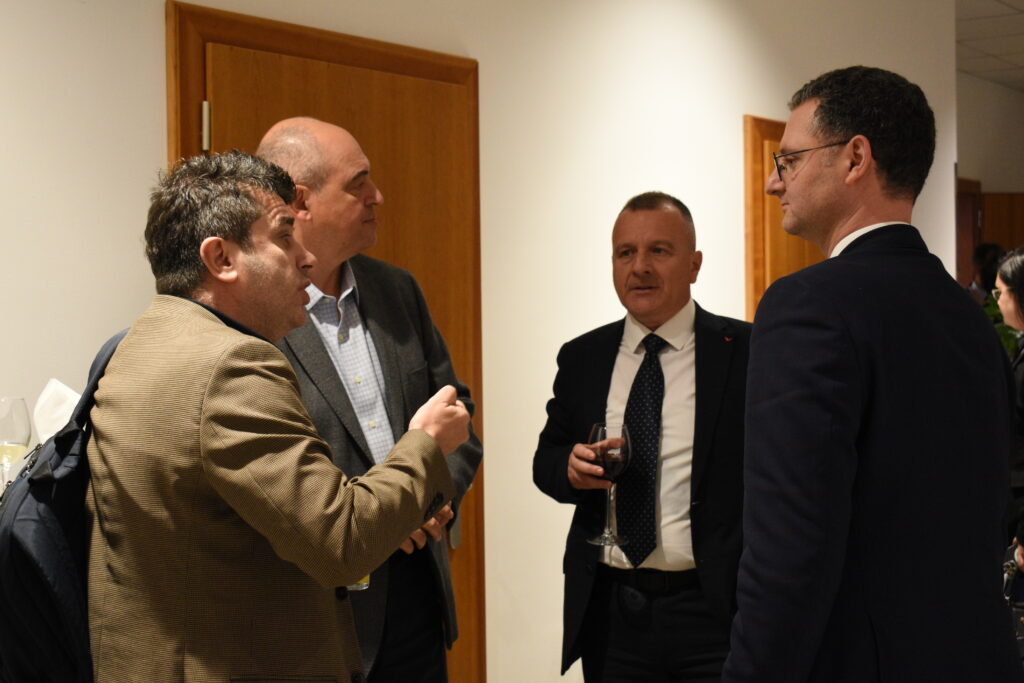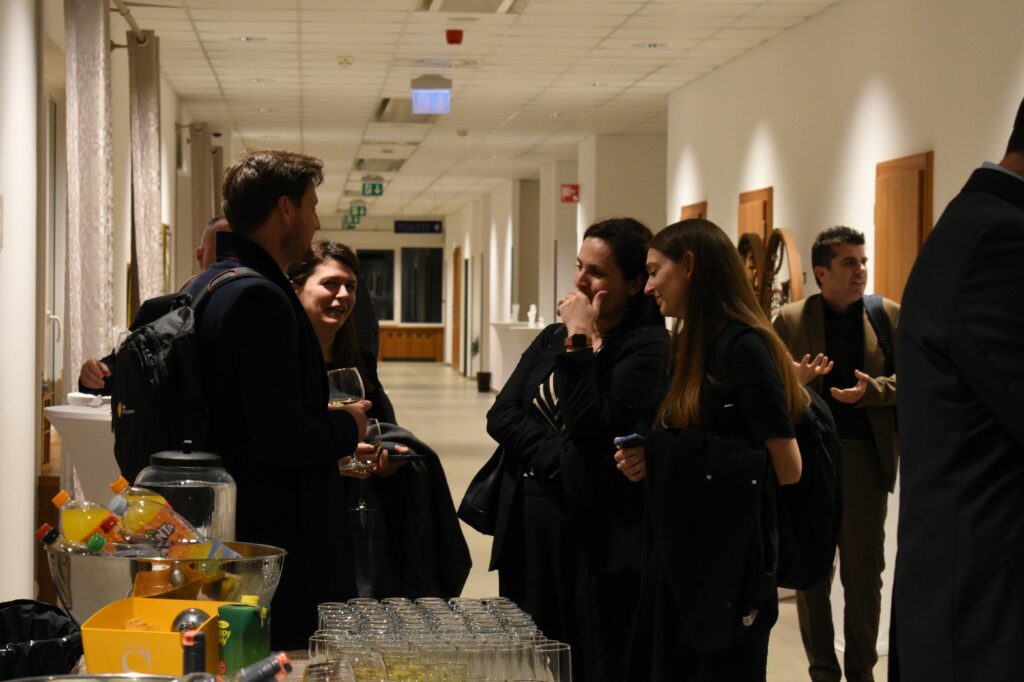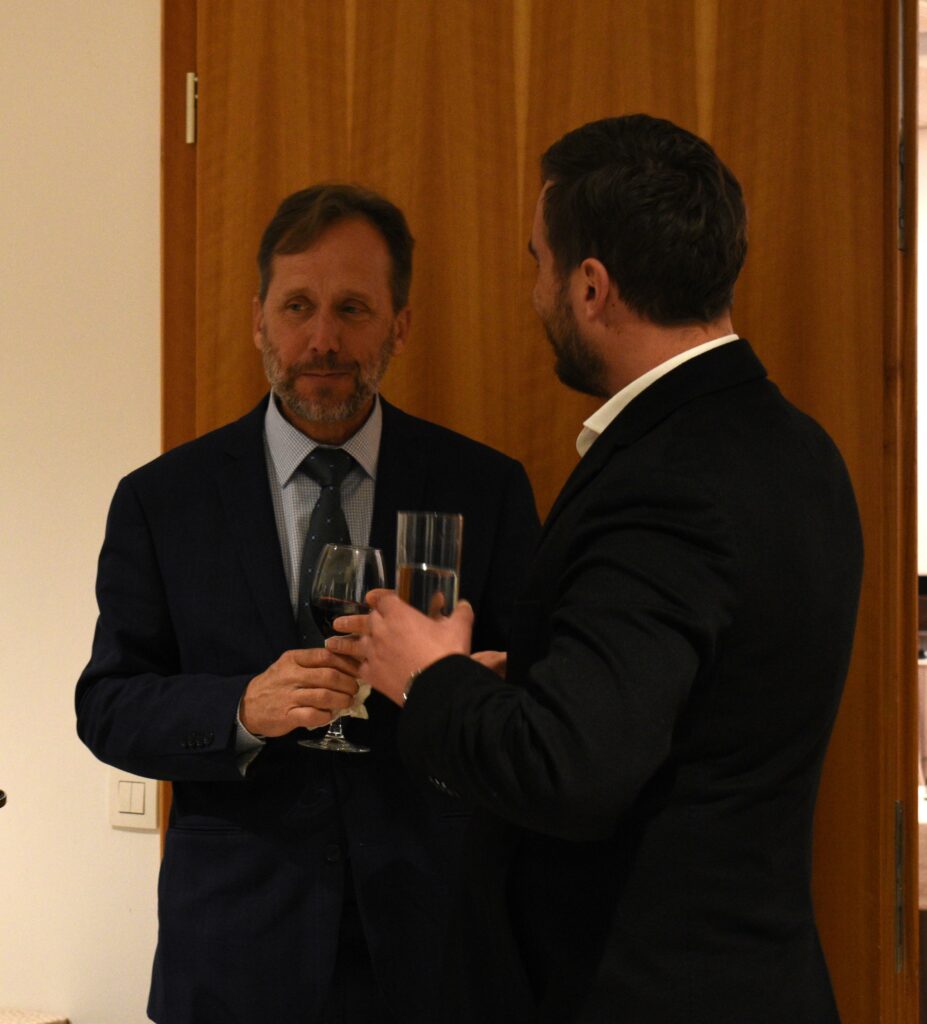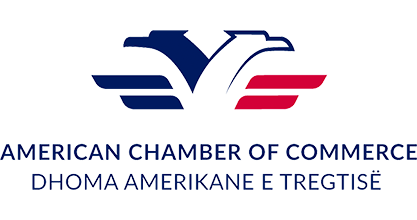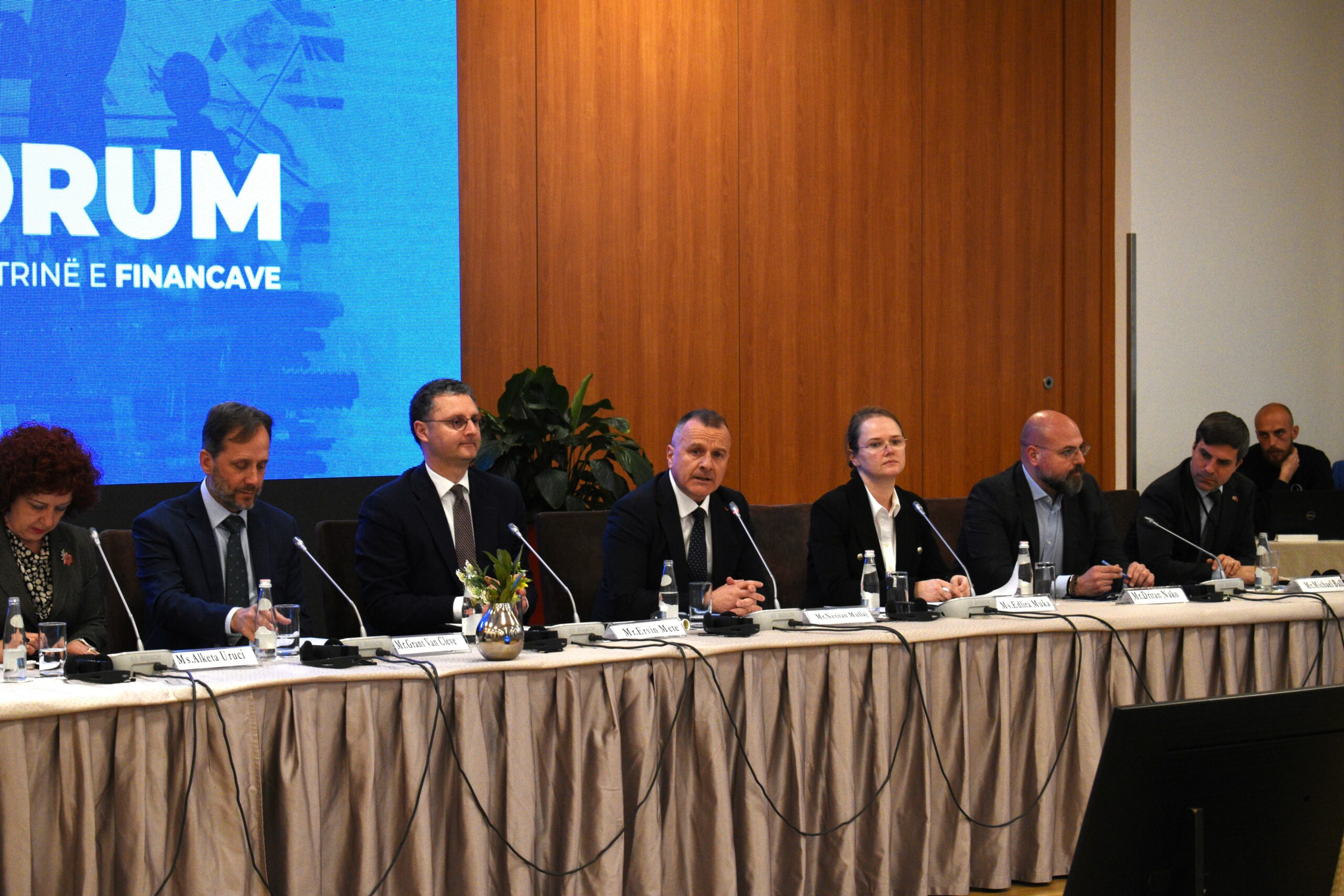“Good is the enemy of great” – quoted Mr. Grant Van Cleve, President of the American Chamber of Commerce, encapsulating the need for continuous improvements to provide the best for the economy, businesses, and the country as a whole. This formed the core of discussions at the CEO Forum with Finance Minister Mr. Ervin Mete on March 26, 2024. Senior executives from the American Chamber of Commerce and leading companies in the country engaged in dialogue to address fundamental issues affecting daily business operations, with a focus on finding solutions through collaboration.
“The winds of change are blowing in your favor, driving economic growth. However, these positive developments alone may not suffice to propel us to where we aspire to be. Albania holds potential for growth in tourism and innovative technology, yet challenges persist regarding the availability of a skilled workforce. Resolving this issue is imperative,” remarked Mr. Grant Van Cleve, President of the American Chamber of Commerce.
Minister Mete echoed similar sentiments, emphasizing the significance of the topics discussed with AmCham, as they encompass issues integral to daily business operations. He highlighted their importance in improving the business climate and positioning Albania as an even more appealing destination for foreign investment. Seizing the opportunity, Minister Mete utilized the forum to inform the public, through the media, about forthcoming incentives aimed at benefiting employees. “In June, we plan to introduce a package of tax relief measures. Building upon robust revenue performance, our objective is to translate the current economic momentum into a fairer distribution of prosperity among citizens,” stated Minister Mete during the CEO Forum.
Fiscal policy took center stage at the American Chamber of Commerce’s CEO Forum. Alketa Uruçi, Head of the Tax and Customs Committee, shed light on longstanding unresolved issues such as informality, alongside emerging concerns such as revitalizing the Tax Council, enhancing transparency, and ensuring the sustainability of laws. “For years, Chamber members have highlighted informality in the economy as a key concern and called for government action to expand the tax base. Even the income tax legislation has not fully addressed these challenges, with variations across sectors and certain exemptions extended until 2029,” Uruçi emphasized.
Neritan Mullaj, Executive Director of the Chamber, underscored the importance of institutional communication as a vital tool for addressing business challenges. “Today presents a significant opportunity for institutional dialogue between the American Chamber and the Ministry of Finance, fostering collaboration on critical issues impacting businesses in Albania,” Mullaj remarked.
Minister Mete responded promptly, affirming their commitment to enhancing communication and fostering closer interaction with businesses. He announced the imminent formation of the Tax Council and extended an invitation to experts appointed by the American Chamber to join. Minister Mete expressed readiness to continue engaging with AmCham to promptly address pressing business issues and explore proposed solutions.
Key Issues Addressed by the American Chamber of Commerce at the Forum
Fiscal sustainability: The necessity for fair, sustainable, and predictable tax policies to mitigate adverse effects on businesses is emphasized. It is suggested that the Ministry of Finance prioritize the updating of the Income Tax Guidance, integrating feedback gathered from businesses since its implementation began. Furthermore, a comprehensive awareness campaign aimed at business compliance with the new income tax law is needed.
Increased transparency towards taxpayers: The imperative to publish all stances regarding specific legal provisions by the General Tax Directorate or the Ministry of Finance is highlighted. Additionally, there is a need to enhance consultation and institutional communication processes to ensure timely publication of draft acts and responsible responses to business comments.
Informal economy and expansion of the taxpayer base: Strong support is voiced for boosting budget revenues by integrating more taxpayers into the formal economy, without resorting to tax rate hikes. Crafting a policy against informality is deemed essential to achieve this objective.
Legislative changes in progress: A rigorous analysis of recently proposed laws affecting the fiscal burden, including those concerning the property tax, mandatory earthquake insurance, and extended producer responsibility legislation, is deemed necessary. Concerns raised by businesses regarding tax overlap and the necessary involvement of the Ministry of Finance are listed.
Sector-specific issues and large businesses: Certain sectors and large businesses are grappling with problems, particularly concerning tax reassessment practices by tax authorities, exemptions from VAT issued by the National Agency for Natural Resources, and exceeding legal deadlines. Updating the joint guidance of the Ministry of Finance and the Ministry of Energy is crucial to address this issue.
Businesses await approval of a new Ministry of Finance Guidance for the implementation of Tax Agreements. Concerns persist regarding delays from the General Tax Directorate in implementing these agreements, with continuous delays or incomplete responses to applications.
Revitalization of the Tax Council: Reviving the Tax Council yields numerous benefits for promoting fiscal policies.
New payment systems (Electronic): Government initiatives and relevant legislation in this realm, along with Albania’s application for membership in the Eurozone (SEPA), were extensively discussed.
